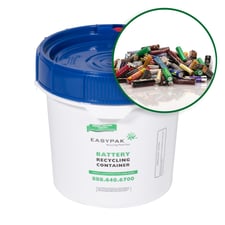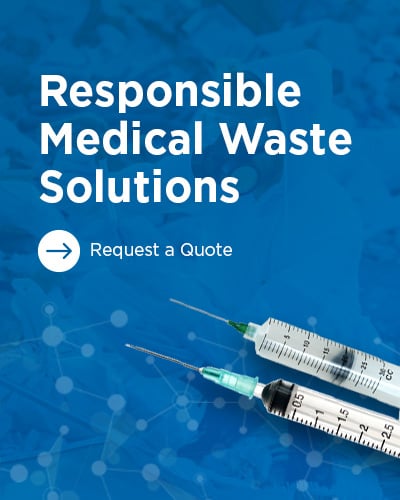Significant Impact Of Recycling Batteries From Healthcare Facilities

Despite the many benefits of battery recycling, healthcare facilities have slowly adopted recycling programs. For example, a study conducted by the Environmental Protection Agency (EPA) in 2014 found that only 9% of hospitals had a battery recycling program.
There are several reasons for this low rate of adoption. First, batteries can be expensive to recycle, and healthcare facilities are already struggling to contain costs. Second, there is a lack of awareness of the benefits of recycling batteries among healthcare professionals. And third, there is a lack of infrastructure for recycling batteries in many parts of the country. However, the low rate of battery recycling in healthcare facilities is starting to change. In recent years, there has been an increase in battery recycling programs at healthcare facilities. And as awareness of the benefits of recycling batteries grows, more healthcare facilities will likely adopt recycling programs.
Benefits Of Recycling Batteries
There are many benefits of recycling batteries in healthcare facilities. First, it can help to reduce the environmental impact of storms. Batteries contain several toxic chemicals, including lead and mercury, which can be released into the environment if they are not recycled properly. Second, recycling batteries can help to save money. Third, recycling batteries can provide a financial incentive for healthcare facilities to recycle them, as they can receive cash for the recycling of the batteries.
Finally, recycling batteries can help to ensure that healthcare facilities have a reliable supply of batteries. Finally, by recycling batteries, healthcare facilities can help to reduce the demand for new batteries, which can save money and help to protect the environment.
Health Problems Caused By Disposing Of Batteries

Disposing of batteries can lead to health problems for humans such as:
- Toxic materials like lead and mercury can contaminate the soil and water, which people or animals can ingest.
- In 2008, the Environmental Protection Agency (EPA) estimated that lead-acid batteries were responsible for nearly 60 percent of all lead poisoning cases in children under six.
- Exposure to high levels of lead can cause damage to the brain and nervous system, resulting in learning difficulties, behavioral problems, and even seizures.
- Mercury is also a neurotoxin that can cause problems with brain development, leading to reduced IQ levels and impaired motor skills.
- Exposure to small amounts of mercury can cause headaches, dizziness, weakness, and nausea.
- More significant amounts can damage the lungs, kidneys, and brain and even cause death.
- Batteries also contain other toxic materials like cadmium and nickel, which can cause cancer and respiratory problems.
- By recycling batteries, we can reduce the amount of these toxic materials in the environment.
How To Increase The Recycling Of Batteries In Healthcare Facilities?
Several things need to be done to increase the recycling of batteries in healthcare facilities. First, healthcare professionals need to raise awareness of the benefits of recycling batteries. Second, recycling programs need to be established at healthcare facilities. And third, the infrastructure for recycling batteries needs to be improved.
Healthcare facilities can play a vital role in increasing the recycling of batteries. By establishing recycling programs and improving awareness of the benefits of recycling batteries, healthcare facilities can help to reduce the environmental impact of storms, save money, provide a financial incentive for recycling, and help to ensure a reliable supply of batteries.
Steps Healthcare Facilities Should Take For Battery Recycling

- Establish a recycling program: Many health facilities have “battery disposal near me” programs for batteries and other materials.
- Improve awareness of the benefits of recycling batteries: Healthcare professionals can play a crucial role in raising awareness of the benefits of recycling batteries.
- Improve the infrastructure for recycling batteries: The infrastructure needs to be improved to make it easier for health facilities to recycle.
- Stay up to date with new battery recycling technologies and processes: As new battery recycling technologies and procedures are developed, it is essential for health facilities to stay up to date with them.
- Reduce your dependence on batteries: One way to reduce the environmental impact of storms is to reduce your reliance on them.
- Reuse batteries when possible: Another way to reduce the environmental impact of storms is to reuse them when possible.
- Teach others about the importance of recycling batteries: One of the best ways to reduce the environmental impact of storms is to educate the staff and other workers about the importance of recycling batteries.
These are some of the steps that healthcare facilities can take to increase recycling and reduce the environmental impact of batteries.
Dos And Donts For Disposing Of Batteries You Must Know!
- Do recycle your batteries
- Do proper research on which recycling facility to use
- Do clean your batteries before recycling
- Don't throw away batteries in the trash
- Don't incinerate or puncture batteries
- Do teach others about the importance of recycling batteries
- Do stay up to date with new battery recycling technologies and processes
- Don't buy batteries that can not be recycled
- Do reduce your dependence on batteries
- Do reuse batteries when possible
PureWay Has An Efficient Way Of Recycling Batteries
As a healthcare facility, you generate a lot of hazardous waste daily. This includes batteries, which are considered hazardous waste due to their lead content. Lead is a toxin that can cause serious health problems, so it's important to recycle batteries properly. PureWay helps you understand the importance and ways on How to dispose of batteries.
PureWay can help you with battery recycling in healthcare facilities. We offer a safe and environmentally friendly solution for disposing of batteries.
Conclusion
Battery recycling is essential to reduce the environmental impact of storms. Healthcare facilities can play a crucial role by establishing “Battery Recycling Near Me” programs and improving awareness of the benefits of recycling batteries. It is also essential for healthcare facilities to stay up to date with new battery recycling technologies and processes. Finally, reducing dependence on batteries and reusing them when possible can also help to reduce the environmental impact of batteries.





